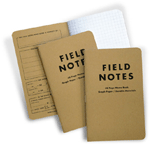by Margaret Atwood
Nan A. Talese
Buy at Powell’s »March 23, 2010
Barbara Kingsolver
Kamila Shamsie
Judged by
I found Burnt Shadows dense and slow moving at first, although I was drawn at once to Shamsie’s theme, the far-reaching consequences of war. She follows the two families of Ilse Weiss and Harry Burton and Hiroko Tanaka and Sajjad Ashraf over three generations, from 1945 to post-Sept.-11 New York, from Nagasaki to Delhi to Karachi to New York, Afghanistan, and Canada. I admired the ambitious scope. But I was most moved by the poetic details. Tanaka, an atomic bomb survivor, carries the image of the cranes from the kimono she was wearing on the day of the bomb burned into her back. Her half-Pakistani son, Raza, thinks of the decades-long relationship between his parents and the Weiss-Burton family as a “dance of spiders” in which they support, strengthen and protect each other. Abudullah, an Afghan the young American Kim Burton agrees to transport over the border to Canada in 2002, says, “War is a disease. Until you’ve had it, you don’t know it.” But in the end Burnt Shadows struck me as more allegory than fully fleshed novel.
 Keep your lists of books, quotes, and sketches in Field Notes Memo Books. Check our exclusive offer for ToB readers.
Keep your lists of books, quotes, and sketches in Field Notes Memo Books. Check our exclusive offer for ToB readers.The Lacuna is set during a tumultuous and intriguing time in Mexican history—the 1930s, when Frida Kahlo, Diego Rivera, and Leon Trotsky were neighbors in a community just outside Mexico City. I’ve visited this location (Kahlo and Rivera’s house is on a tour now, and I also went by the house where Trotsky lived). At first I wasn’t sure about Kingsolver’s narrative strategy. She presents the dramatic story of Kahlo, Rivera, and Trotsky (who was Kahlo’s lover), and the ultimate assassination of Trotsky, through the journals of Harrison Shepherd, a half-Mexican, half-gringo fellow who was a plaster mixer for Rivera, then a cook and confidant to Kahlo, before settling in North Carolina in the late 1940s and writing historic novels. What swayed me was the gorgeous writing, the building resonance of the recurrent imagery of the lacuna (a mysterious opening in the sea off the Isla Pixol where Shepherd swims as a boy—“an opening, like a mouth, that swallows things,” he is told), and the series of surprises in the last third of the book, including a razzle-dazzle sleight of hand that deepens the meaning of the title. As the author Harrison tells his stenographer Violet Brown, who holds steadfast to his legacy, “The most important part of this story is the piece you don’t know.”
Jane Ciabattari is president of the National Book Critics Circle, a founding blogger on Critical Mass, and author of the short-story collection Stealing the Fire. Her work has appeared in Bookforum, npr.org, the Guardian online, the Daily Beast, the New York Times, the Los Angeles Times, the Washington Post, and the Columbia Journalism Review, among others. Recent short stories are online at KGB Bar Lit, Verbsap, Literary Mama, Lost Magazine, and Fictionaut (and on her web site). Known connections to this year’s contenders: “I don’t have a conflict with any of these authors.”